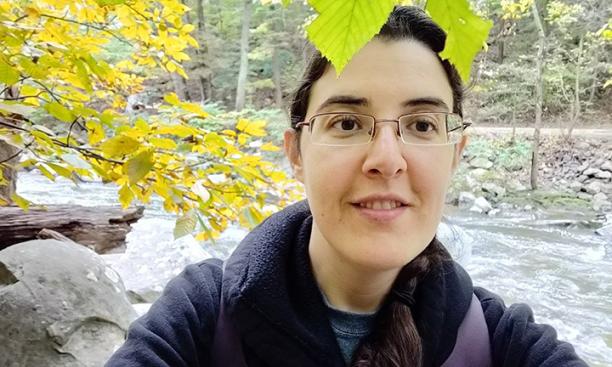
For the first time since Princeton doctoral candidate Elizabeth Tsurkov was kidnapped in Iraq more than six months ago, the University has acknowledged that she was in the country for research related to her dissertation.
“Elizabeth was kidnapped while enrolled at the University and was in Iraq conducting research related to her approved Ph.D. dissertation topic,” said Michael Hotchkiss, a deputy spokesman at the University.
According to Hotchkiss, the University remains “deeply concerned about the safety and well-being of Princeton graduate student Elizabeth Tsurkov and are eager for her to be released so she can rejoin her family and resume her studies."
The statement also said: “We have offered support to Elizabeth’s family and are in communication with government officials and experts for guidance on how the University can best help to bring Elizabeth home safely."
Elizabeth Tsurkov’s sister Emma said, “It’s good [that Princeton] acknowledges that she was there to do research for her dissertation, so [I’m] glad that statement is finally being made.”
In mid-September, Emma Tsurkov visited Princeton to meet with Provost Jennifer Rexford ’91 and Joyce Rechtschaffen, assistant vice president of the Office of Government Affairs at Princeton. Emma Tsurkov said during that meeting, the provost confirmed that Elizabeth “was doing approved dissertation research in Baghdad when she was kidnapped.”
Until now, the University has declined to offer details of Elizabeth Tsurkov’s research, citing legal requirements such as the Family Educational Rights and Privacy Act (FERPA), but maintained that no University-related travel to Iraq is permitted for any student. Iraq is on the list of the University’s “Category X” destinations, meaning that, since at least April 2022, “such travel [is] not feasible, even with significant precautions taken,” according to the Permitted Travel Policy.
According to a draft of her dissertation prospectus dated Jan. 27, 2021, Elizabeth Tsurkov’s research included “lab-in-the-field experiments in Iraq.” Emma Tsurkov said her sister presented her research plan in a meeting that was open to the Department of Politics in late 2021, and her dissertation committee approved the prospectus in May 2022.
“Multiple Princeton employees were well aware of my sister’s research in Baghdad,” Emma said.
During her meeting with Rexford and Rechtschaffen, Emma Tsurkov was told her sister has maintained continuous status as a student, and that the University would coordinate with the Tsurkov family in engaging Princeton resources and different organizations and governments that might be able to help.
Tsurkov told PAW at the time that “I really hope that that does mark a change in the interactions I’ve had so far [with the University], and I really hope that this actually moves forward in a productive way, because my sister’s life is on the line and there is nothing more important to me than saving her. Nothing else matters.”
“I expect that Princeton … will make good on its promise and help [raise] this issue with the U.S. government and any other capacity,” she said.
Elizabeth Tsurkov, a dual Israeli-Russian citizen, entered Iraq using her Russian passport. In addition to studying at Princeton, she is a fellow at the New Lines Institute for Strategy and Policy in Washington, D.C.
When the initial announcement about Elizabeth Tsurkov’s kidnapping made news in early July, the University released a public statement, and in early September, Hotchkiss told PAW that after learning of Tsurkov’s disappearance, the University was in contact with the Tsurkov family, Israeli and U.S. government officials, and relevant experts.
The Tsurkov family has also been working with the Richardson Center for Global Engagement, a nonprofit aiming in part to negotiate “for the release of prisoners and hostages held by hostile regimes or criminal organizations.” Mickey Bergman, vice president and executive director of the Richardson Center, previously echoed comments made by other experts who have called upon the United States and Princeton to act.
For Emma and the Tsurkov family, nothing is more important than bringing Elizabeth home.
“We don’t have a proof of life. We don’t have a list of demands. We don’t have anything,” said Emma Tsurkov. “If nothing is done, I will never see her again.”
